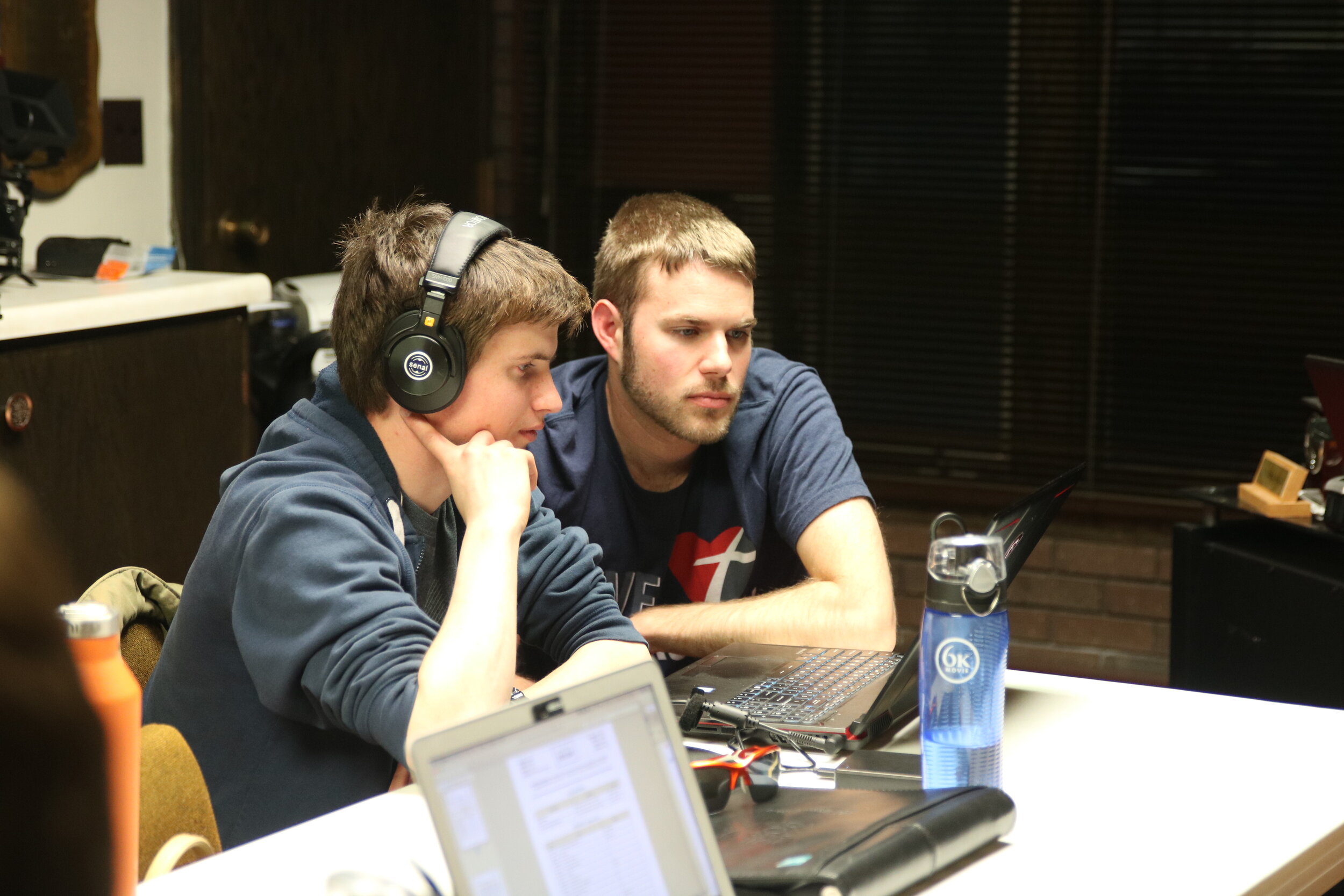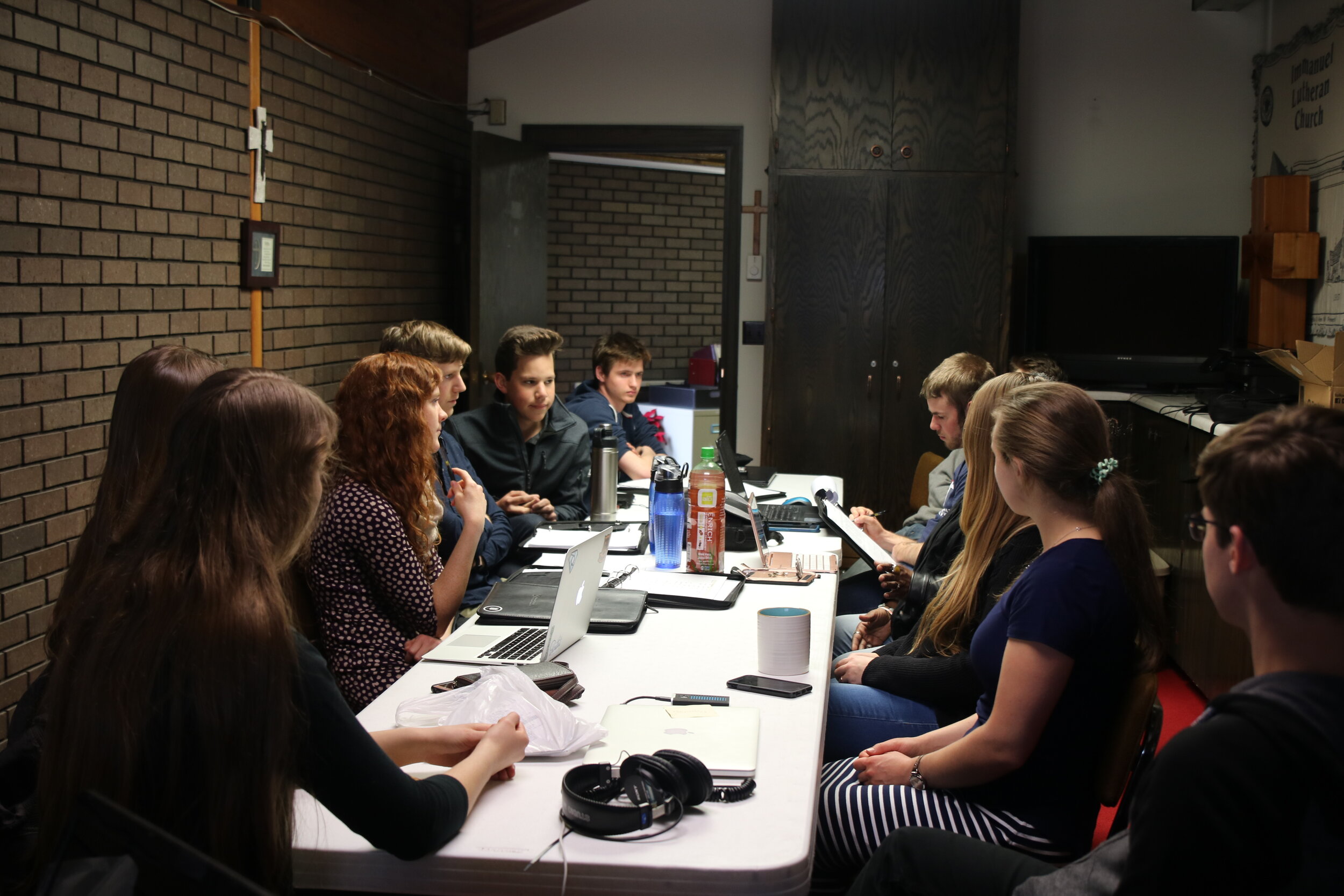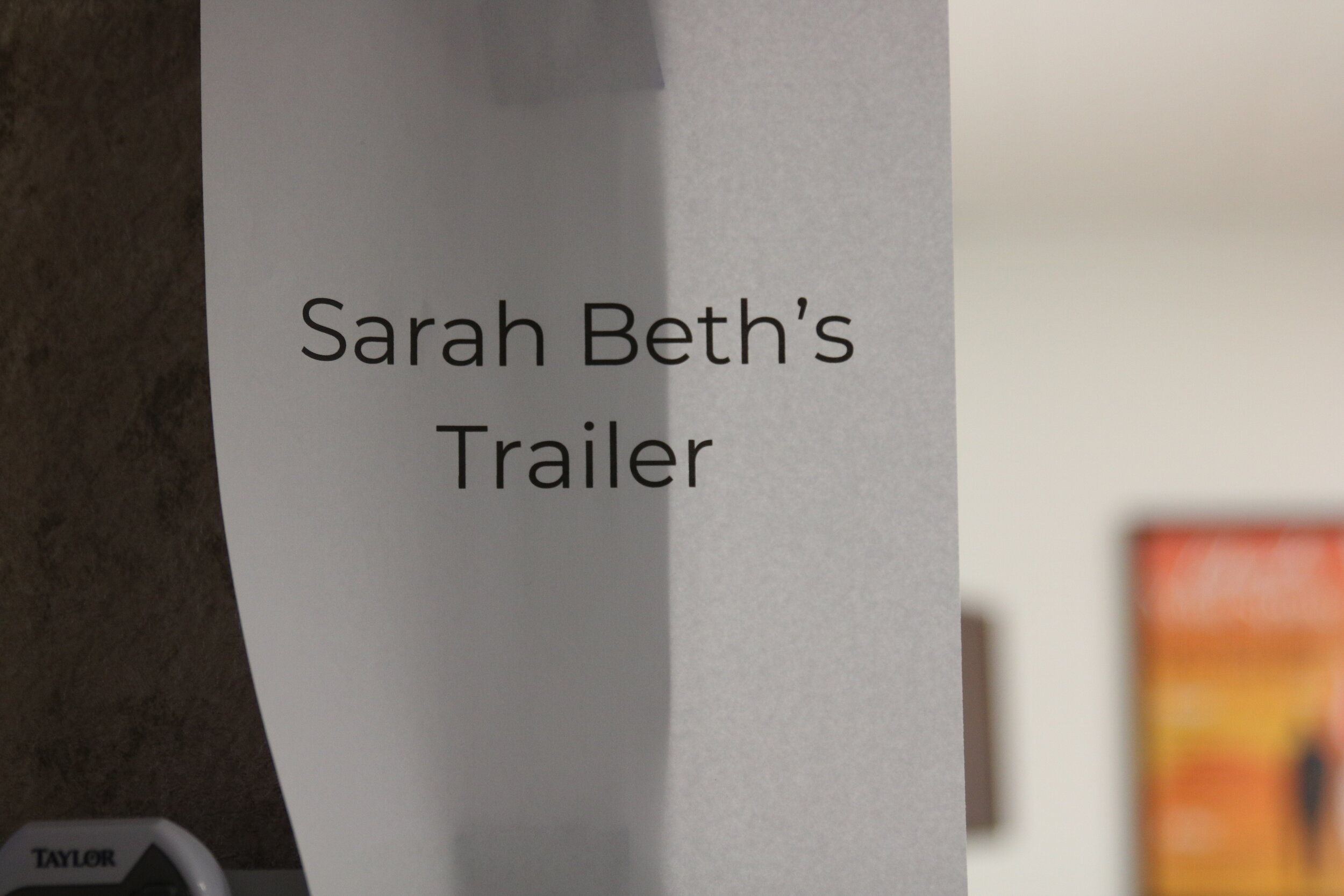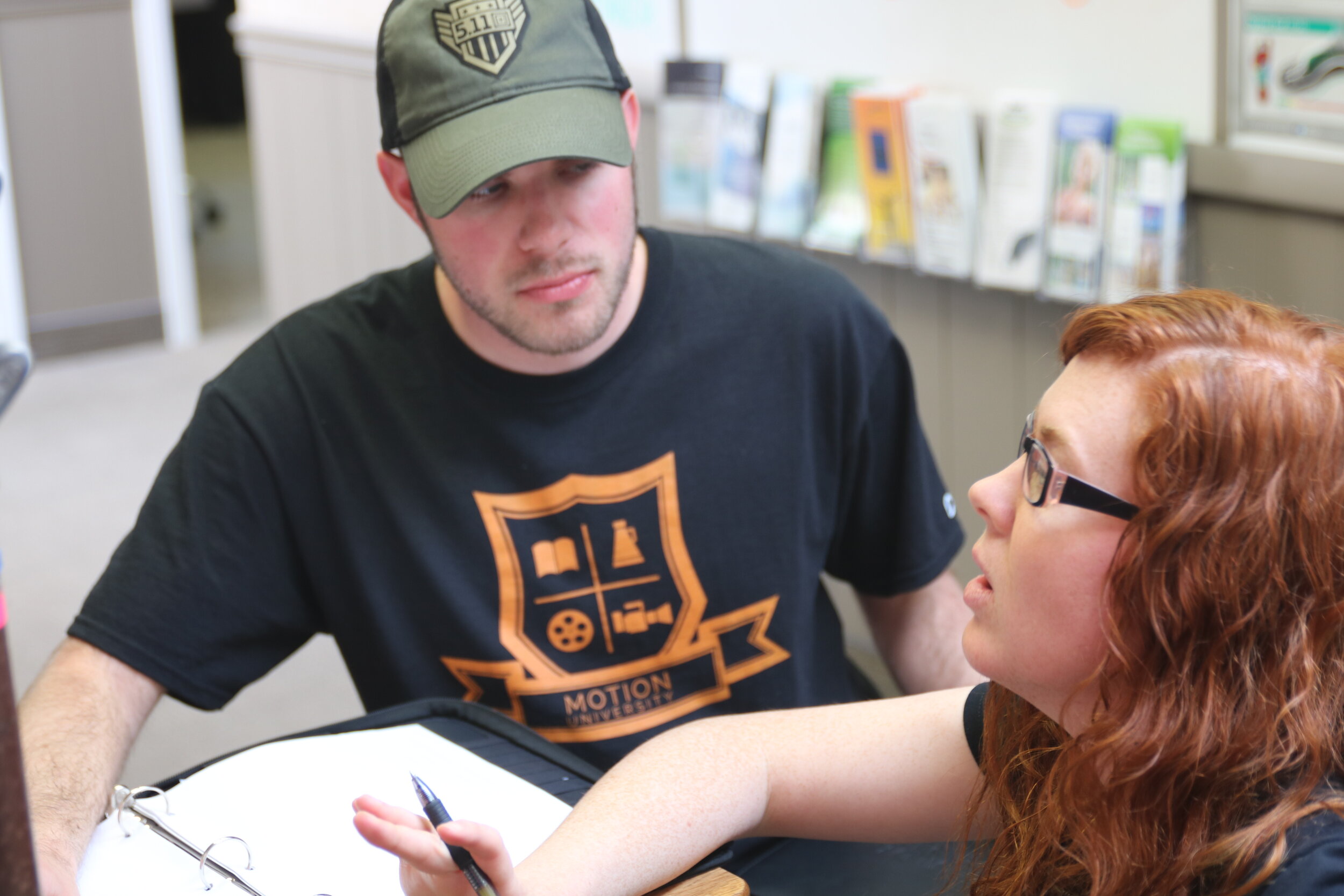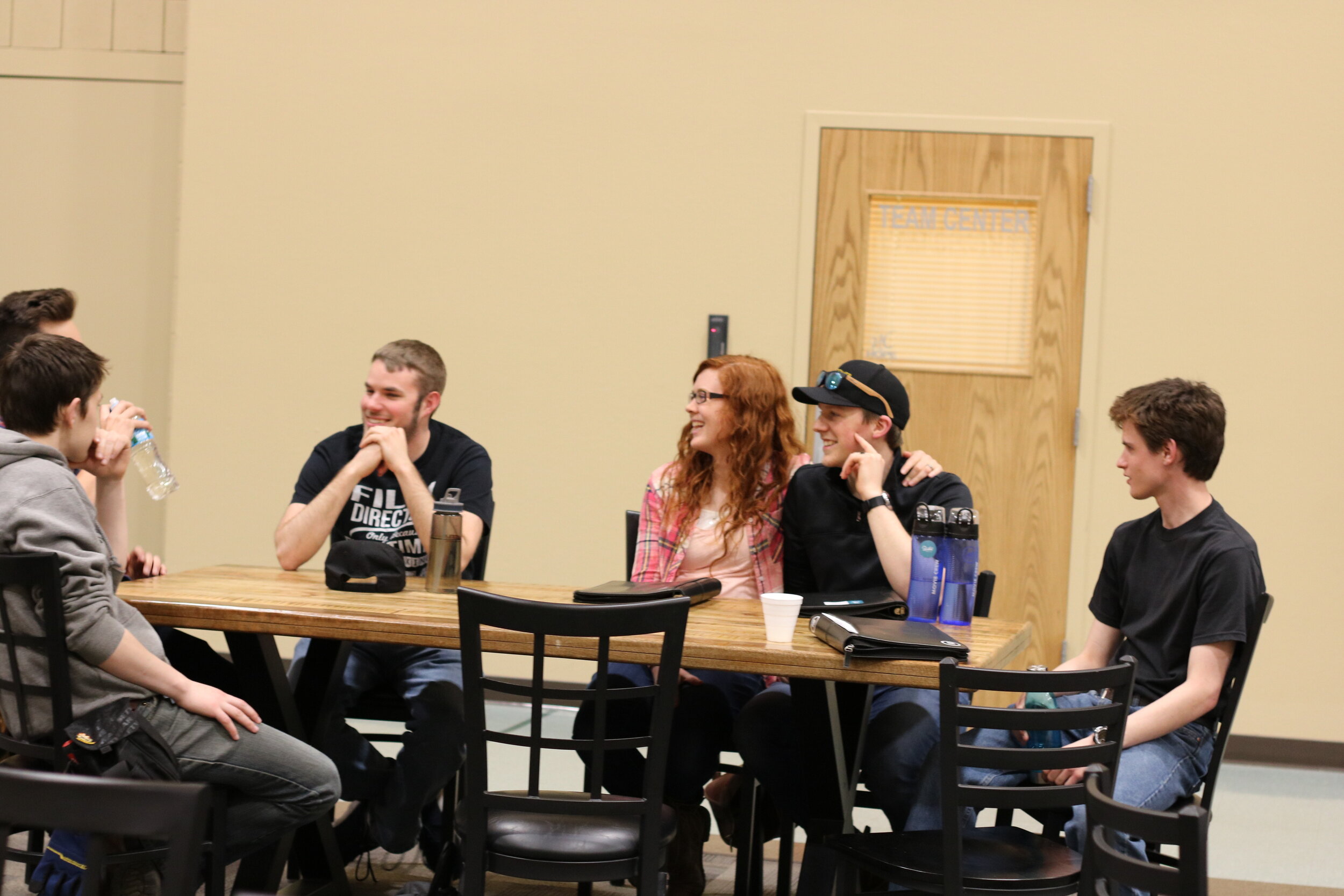Producer Thoughts: Every Filmmaker Should Be A Producer
Producer, Micah Versemann, and Director, Jacob Waldorf, go over the schedule on set.
When you think of roles on a film who comes to mind? Certainly, the writer and director, who created and crafted the story; the actors, who brought the characters to life; the editor, who made the film presentable; and the composer, whose score you’re still humming. Yet so often people forget about the Producer and his instrumental role in crafting the film. In fact, the role is so important I believe every filmmaker should produce someone else’s film during their career.
You may be wondering, why should I spend my time on someone else’s story? I have my own stories to tell. I can learn all I need from directing my own projects. To a degree I would agree with you. In fact, if you have not yet written scripts or been the director on a project then I would say you are not ready to serve as the producer. Why are those aspects so important? Let’s find out.
1) The Emotional Connection
For those who have not yet spent the time writing a script you have no idea how many hours, days, weeks, months, sometimes years, go into crafting that story. In the course of time that it takes to write even a short film you can very easily get attached to it. It’s your baby that you’ve watched grow up into something you believe is worthy of being put on screen. Yet sometimes that attachment can make it hard to make decisions based not on the creative, visionary side but on the practical, technical and business side. That is where a producer would come in. However, until you’ve been in the position of the writer it is hard for you to understand what they’re thinking and how to best handle it in a way that stays true to vision while also working for the production.
2) The Department Interaction
Just like with writing a script, being the director of a film allows you to understand what it’s like to try to bring your vision to life while staying within your means. You’ll experience what it is like to be on set trying to get the perfect shot regardless of how hard it is or how long you have to go. Beyond that, being a director gives you a taste of what each department does and the responsibilities they have. Whether its the art department asking about wardrobe for the actors, the AD’s telling you you’re going to have to cut down the number of shots, or working with a colorist to fine-tune the film; being a director will give you the basic understanding of the process and departments.
But why is this so important to being a producer? Can’t you just bring on enough people that know what they’re doing that you can easily jump into the role? Well let’s take a look.
1) In for the Long Haul
As a producer you will be a part of the project from the very early stages of pre-production all the way through the release once post-production is finished. So, understanding the whole process and the attachment that writers and directors have is super important when it comes to working through difficult decisions. That could be saying there isn’t the budget for an actor, having to decide which crew positions you can do without or having the funds to feed the crew. Currently I am still working as Producer on a project I joined in April of 2018 and will finally be released in 2020, which shows just how long a commitment it can be.
Director, Jacob Waldorf, and Producer, Micah Versemann, look over a scene a head of a ADR session.
2) Caring for the Crew
One of the biggest jobs a producer is tasked with is looking out for the well-being of the cast and crew. A job that takes on many forms.
First and foremost, caring for the crew means making sure that they have the necessary tools to do their job. For camera and lighting it might be having the room to build and test out their gear. Art Department might need a place they can build props or paint set decorations and sound may ask for a place to capture ADR from actors before they leave set.
Often overlooked is a production office, which really is the hub of a film. It’s where meetings are held; forms, scripts, and call sheets are printed and where the DIT work is done. A separate area to do this work can be instrumental. It allows those on the crew that don’t have prep work to rest and relax elsewhere while giving the Department Heads the space to concentrate on what needs to happen for the next day.
Crew meeting in the Production Office
Then there’s lodging; whether your crew is staying in a hotel, retreat center, camp, or host homes, do they have the needed space and comfort to get a good night’s sleep? On the recent project I produced the two biggest housing challenges were trying to keep the different departments together so they could prep stuff at night while also making sure there were enough cars at each house to get everyone to set.
But caring for the crew means so much more than just making sure their off-set needs are met. On-set, is there enough food and drink that the crew can stay hydrated and not go hungry? If you’re filming out in the sun all day is there sunblock and shade structures to keep the crew from getting burned? On Wheelchair, very last minute I had to find a shade structure as there was none at the one outdoor location we were shooting at the next day. What about the actors, do they have the space to bring the performance to the screen or are they being distracted and bothered by the crew? The recent Wheelchair shoot saw some of our actors having to perform very emotional scenes. Part of my job was to provide an area on or near set that kept them away from the noise and craziness of a film set and allowed them to focus on their role. While these things may seem very minor, they can make or break a film crew in many instances.
Sign for talents private room
3) The Business Man
Another aspect of being the producer is being the business man. Which means you will be on the phone a lot. Many times, on the set of Wheelchair I found myself in my car, or outside the building we were filming in on the phone troubleshooting problems or relaying information to crew members, locations and catering about schedule changes that came up. Some of those problems included getting bathrooms unlocked, getting props, gear or wardrobe that had been forgotten elsewhere or working with location owners to answer various questions.
As the business man of the production it also means you will be responsible for overseeing a lot of paperwork. One of the biggest challenges with paperwork is making sure you have all the forms filled out for locations. Many productions have run into trouble on the day of shooting when they realized that they didn’t have all the forms filled out. Other paperwork includes filming notices, releases, contracts and more depending on the size of the production.
Producer, Micah Versemann, busy on his phone while in-between takes
Then there’s the budget. How many films never see the light of day due to funding issues or never see a return on their budget because of poor decisions. As the producer, it’s your job to oversee that and sometimes make the tough decisions. If you suddenly find yourself overbudget in one section then you have to pull money elsewhere and it’s your call on where that money comes from. And let’s not forget about paying people. Making sure everyone gets paid for their time is super important.
Producer, Micah Versemann, and 1st Assistant Director, Hannah Bartlett, discuss the schedule for the day’s shoot.
In closing, don’t let the challenges, time commitment or the fact that what you’re doing isn’t as exciting as running the camera or rigging a light stop you. Being a producer can be just as exciting as you watch the project go from words on a page to a finished product. You also get to interact with the entire cast/crew as needed during the shoot making sure each department has what it needs to do its job. Plus, the ability to watch the monitor during filming is pretty cool.
For me working as a producer was a very enjoyable experience. Is it the main area of film production that I want to do? No, but now I have at least gained more experience in an area I hadn’t been heavily involved in. I do hope to produce a few more projects for people in my career and now its just waiting to see what stories come my way.
Relaxing before a department head meeting after shooting wrapped for the day.

